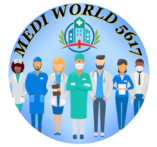DIALYSIS DEPARTMENTS

A dialysis department is a specialized unit within a hospital, clinic, or standalone facility that provides dialysis treatments for patients with kidney failure or severe chronic kidney disease (CKD). Dialysis is a medical procedure used to remove waste products, toxins, and excess fluids from the blood when the kidneys are no longer able to perform these functions effectively.
Components of a Dialysis Department:
- Dialysis Machines: These devices perform the filtration of blood, mimicking the natural function of healthy kidneys.
- Treatment Areas: Comfortable stations equipped with dialysis machines, reclining chairs, and space for patients to spend several hours during the treatment.
- Water Treatment Systems: Purified water is critical for dialysis; the water treatment system ensures the water used is free of contaminants.
- Medical Staff:
- Nephrologists: Doctors specializing in kidney care.
- Dialysis Nurses: Trained in administering dialysis and monitoring patients.
- Technicians: Maintain and operate dialysis machines and related equipment.
- Dietitians: Help patients manage their diet to support kidney health.
- Social Workers: Assist with emotional support and navigating insurance or other logistical challenges.
- Patient Monitoring Systems: Equipment to measure vital signs and ensure patient safety during the procedure.
- Education and Counseling Rooms: Space for educating patients and families about kidney disease management, lifestyle modifications, and treatment options.
Types of Dialysis Offered:
- Hemodialysis (HD):
- Performed in the department or at home.
- Blood is filtered using an external machine.
- Peritoneal Dialysis (PD):
- Uses the patient’s peritoneal membrane inside the abdomen for filtration.
- Typically performed at home.
Goals of the Dialysis Department:
- Provide life-sustaining treatment for patients with end-stage renal disease (ESRD).
- Monitor patient health and adapt treatment plans as needed.
- Educate and empower patients to manage their condition effectively.
- Improve the quality of life for patients by minimizing complications and side effects.
